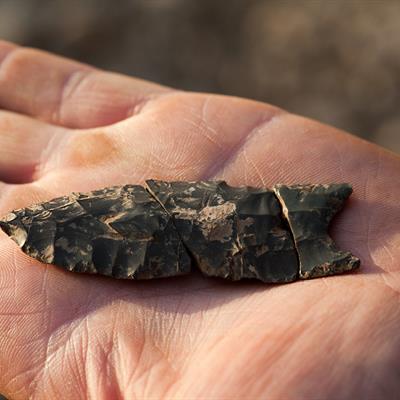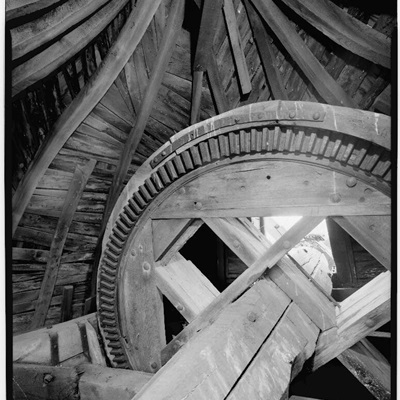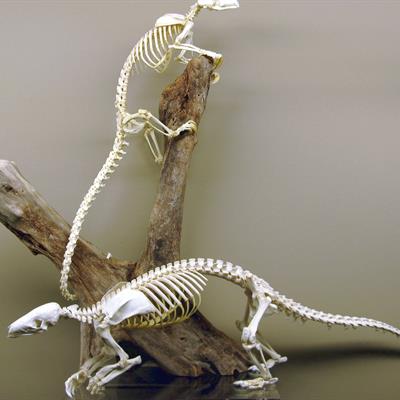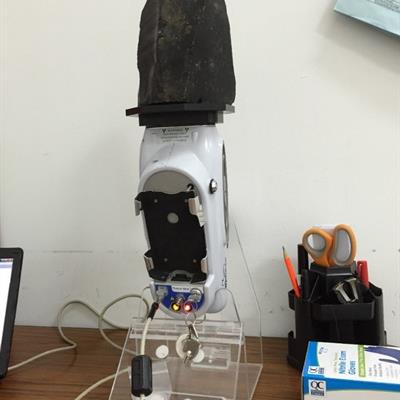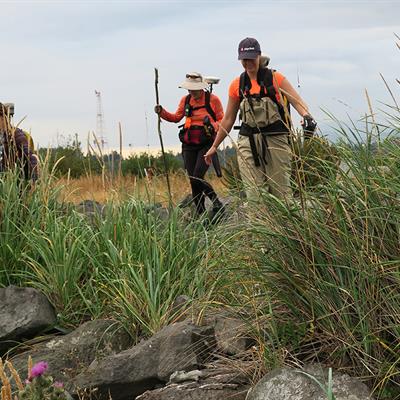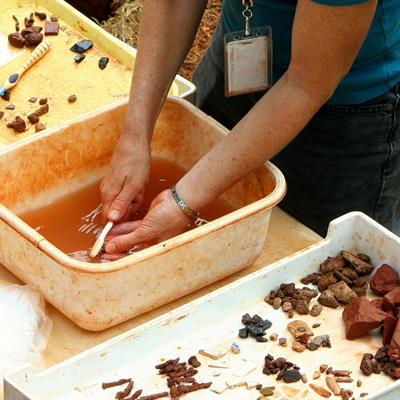SAA offers free-to-member and fee-based online seminars every year, but there may be content that you've missed. Seminars On-Demand provides the opportunity to purchase access to past seminar recordings. This comes with many of the same advantages as live online seminars. Participants will receive access to the video recording for two months, two RPA Continuing Professional Education credit hours, and a certificate of completion.
After completing your purchase, you will receive an email from SAA
staff with a link to the recording. Please allow one business day to complete this process. If you chose the group registration option, you will also receive information about providing access to your group (there is no maximum to the number of people who can be in your group).
Please note that you are not registering for a live event, but rather purchasing access to a past recording.
If you are an SAA member, you also have access to 30+ hours of free on-demand recordings in the Online Learning Archive. Log in to the Member Center and start learning!
Current On-Demand Options
Reading Flake Scars to Understand Lithic Technologies and Past Human Behavior
Recording Date: May 09, 2023
Duration: 2 hours
Certification: RPA-certified
Pricing
Individual Registration: $99 for SAA members; $149 for non-members
Group Registration: $139 for SAA members; $189 for non-members
Terry Lee Ozbun, AINW Senior Archaeologist, studied lithic technology under Dr. Jeffrey Flenniken and was awarded the Crabtree Memorial Scholarship in Lithic Technology during graduate studies at Washington State University. Terry has published articles and taught classes in lithic technological studies for over 30 years.
Meghan Johnson, MA, RPA
Meghan Johnson is a flintknapper and lithic analyst at AINW. Meghan has taught classes on lithic technological studies for seven years. Meghan’s research aims to identify lithic reduction strategies employed in the Pacific Northwest through technological analysis and experimental replication. Her current research interest focuses on cobble chopper production and use.
Kelley Prince Martinez, MS, RPA
Kelley Prince Martinez is a lithic specialist in technological ground stone analyses in the Pacific Northwest. Martinez is experienced in conducting macroscopic and microscopic ground stone analyses, combined with experimental replication and use wear studies, to understand raw material selection, ground stone tool manufacture, use, and recycling strategies.
Nick Hlatky, MA, RPA
Nicholas Hlatky has studied lithic technology in the U.S. Southwest, Micronesia, and the U.S. Pacific Northwest. Nicholas has examined a diverse range of lithic assemblages across these regions, including Clovis, Folsom, and early Archaic period assemblages. He focuses on understanding technological organization through debitage assemblages.
Key attributes such as remnant ventral surfaces and the characteristics of platforms, compression rings, and radial striations are qualitative more than quantitative and therefore better “read” than measured. Diagnostic attributes vary by technology and their identification allows for reconstruction or modeling of reduction sequences. Reduction sequences (aka chaîne opératoire) represent patterns of learned human behavior and can be evaluated for accuracy through experimental replication. Reading ancient artifacts allows us to discover technologies from the clues left by ancient practitioners of those technologies.
This course is designed for professional archaeologists, students of archaeology, and non-professionals interested in lithic technological analysis.
2. Enhance ability to differentiate between natural and human-created flakes
3. Connect attributes to specific reduction technologies and the relationships between individual artifacts and the larger technological systems of which they are a part.
Assessing Significance and Integrity to Establish the National Register Eligibility of Archaeological Sites
Recording Date: March 02, 2023
Duration: 2 hours
Certification: RPA-certified
Pricing
Individual Registration: $99 for SAA members; $149 for non-members
Group Registration: $139 for SAA members; $189 for non-members
Bryan Tucker, PhD, RPA
Dr. Tucker has worked in cultural resource management for over two decades. In 2009, Tucker accepted a position at the Georgia State Historic Preservation Office (SHPO). From 2010 to 2012 he served as Georgia Deputy State Archaeologist and Archaeology Section Chief and in 2012 was promoted to State Archaeologist and Deputy State Historic Preservation Officer. In the fall of 2020, Dr. Tucker left the state and returned to the private sector as a Senior Technical Advisor at New South Associates. He holds a B.A. from Georgia State University, an M.A. from Louisiana State University, and a PhD from the University of Florida, all in Anthropology.
J.W. Joseph, PhD, RPA
Dr. Joseph, one of New South’s co-founders, received his B.A. in Anthropology from the University of South Carolina, and his M.A. in American Civilization, as well as his Ph.D. in Historical Archaeology from the University of Pennsylvania has experience in historical archeology, urban archaeology, industrial archaeology, historic preservation planning, HABS/HAER documentation, Native American consultation, Traditional Cultural Property studies, historic context studies, cemetery research, and public outreach, and specializes in African-American studies. Dr. Joseph has directed projects and research for many clients including the National Park Service; the U.S. Army Corps of Engineers; various State Historic Preservation Offices; several Departments of Transportation; the Historic Charleston Foundation; the Georgia Trust for Historic Preservation; city governments; and private clients.
With an emphasis on National Register Bulletin 36 Guidelines for Evaluating and Registering Archaeological Properties, this seminar will focus on how to apply the National Register Criteria to archaeological sites and how
to determine if a site retains integrity. The instructors will discuss each of the four National Register Criteria, with an emphasis on Criterion D. In particular, they will highlight the sequence of evaluation and
the relationship between the historic context, significance, and the level of integrity needed for the site to be eligible under D.
Please keep in mind that this course is a snapshot in time, and regulations may change.
- Outline how to apply the National Register Criteria to Archaeological Sites
- Explain the relationship between the historic context, significance, and integrity
- Demonstrate the importance of following the sequence of evaluation laid out in the National Register bulletins
Quantification in Zooarchaeology: Calculating and Critiquing NISP, MNI, and MNE
Recording Date: February 24, 2023
Duration: 2 hours
Certification: RPA-certified
Pricing
Individual Registration: $99 for SAA members; $149 for non-members
Group Registration: $139 for SAA members; $189 for non-members
Dr. Wong received a PhD in Archaeological Sciences from the University of Tuebingen (Germany), a MS in Anthropology from the University of Utah, and a BA in Anthropology from the University of California, Davis. She is currently a postdoctoral researcher at the University of Tuebingen and an adjunct professor of anthropology at Metropolitan Community College - Kansas City. She is a zooarchaeologist who is particularly interested in how large-scale environmental changes affected past foragers on the local-level. She is currently involved in two research projects, one at Langmahdhalde, a Paleolithic site in southwest Germany, and one at Boomplaas Cave in South Africa. Although both projects focus on paleoecology, she uses different methods at each. At Langmahdhalde, she now focuses on traditional zooarchaeological methods and stable isotopes, while at Boomplaas Cave, she is a microfaunal specialist.
- Explain how NISP, MNE, and MNI are calculated
- Describe the limitations of each of these quantification units
- Analyze when it is appropriate to apply each of these quantification units
- Be able to critically evaluate and understand these units in colleagues' research
- Be able to discuss how these units apply to and can address specific research questions
Characterization of Obsidian and Coarse to Fine-Paste Ceramics with Handheld XRF
Recording Date: November 15, 2022
Duration: 2 hours
Certification: RPA-certified
Pricing
Individual Registration: $99 for SAA members; $149 for non-members
Group Registration: $139 for SAA members; $189 for non-members
Dr. Johnson's research at Caracol, Belize began in 2010 and initiated his training and application of ED-XRF on over 2,000 ancient Maya obsidian artifacts. Through this geochemical and technological analysis, he learned the basics of XRF physics, the importance of source reference material, and advanced statistical methods used to assign artifacts to known sources to assess ancient regional trade through time. Concurrent with this project, he worked with an international team to characterize obsidian artifacts from two project locations in Ethiopia. Through these projects, he established relationships with XRF specialists and developed a deeper knowledge of portable XRF instruments. Currently, as a practicing archaeologist in cultural resource management, he is expected to apply XRF analysis to obsidian, other volcanic rocks, and potentially other materials in conventional and in often creative ways. As a member of a laboratory team at Far Western Anthropological Research Group, Inc. and working toward advancing technical reports and research papers, he has stayed current with XRF literature describing analyses of various materials, taught other lab staff the fundamentals of XRF, and trained them to use an XRF instrument.
Marc Marino, MA, RPA, University of Arkansas
Marc Marino’s archaeological training with pXRF as an undergraduate student began with Dr. Lucas Johnson at the University of Central Florida Archaeology Laboratory in 2011. Subsequent training with Dr. Wesley D. Stoner, in both pXRF analysis and statistical analysis of data obtained with Neutron Activation Analysis (NAA), built on that foundation at the University of Arkansas, Fayetteville. His internship at the University of Missouri Research Reactor (MURR) with Dr. Brandi Lee MacDonald focused on the trade and exchange of decorated ceramics and obsidian in Aztec Period Mexico (specifically on the independent Tlaxcallan State). While his dissertation research was accomplished using NAA, XRF, and pXRF of obsidian, ceramics, clays, and sediments, Dr. MacDonald also introduced him to other applications of chemical analysis, including the analysis of ochres and pigments. Combined, these experiences have provided exposure to a wide range of projects across broad geographic areas.
- Introduce the method of XRF to those who may or may not have access, but are interested in using XRF to answer anthropological questions relating to obsidian and ceramics.
- Present case studies by which attendees may learn how to perform a specific analysis.
- Outline what is required for XRF analysis of a given material and the limitations of XRF in analyzing certain materials.
- Describe the fundamental physics of XRF and how software transforms XRF spectral to analytical units (i.e., calibrations).
- Explain the basics of analyzing parts per million or weight percent versus untransformed photon peak counts (i.e., statistical procedures).
Step by Step: Section 106 of the National Historic Preservation Act and the National Environmental Policy Act
Recording Date: January 27, 2022
Duration: 2 hours
Certification: RPA-certified
Pricing
Individual Registration: $99 for SAA members; $149 for non-members
Group Registration: $139 for SAA members; $189 for non-members
J. Signe Snortland holds a B.A. from the University of North Dakota and a M.A. from the University of Manitoba in Anthropology. Snortland is an experienced NEPA (National Environmental Policy Act) and Section 106 (National Historic Preservation Act) practitioner, as well as a former manager of a federal office. She has led teams preparing environmental impact statements (EISs) in Colorado, North Dakota, Minnesota, Montana, and Washington. She served as an Environmental Specialist and Area Archaeologist for the U.S Department of the Interior, Bureau of Reclamation. Previously she was the Chief Archeologist for the State Historical Society of North Dakota (NDSHPO) and conducted thousands of Section 106 reviews.
Please keep in mind that this course is a snapshot in time, and regulations may change.
2. Learning the relationship between NHPA and NEPA.
3. Increasing awareness of NHPA and NEPA in Indian Country.
Historic Ceramics Identification
Recording Date: October 05, 2021
Duration: 2 hours
Certification: RPA-certified
Pricing
Individual Registration: $99 for SAA members; $149 for non-members
Group Registration: $139 for SAA members; $189 for non-members
- Distinguish four main ceramic materials (coarse earthenware, refined earthenware, stoneware, porcelain)
- Recognize technological change in pottery production through time
- Recognize decorative change in pottery production through time



